Lions 2013: Tours in Australia over the years
- Published
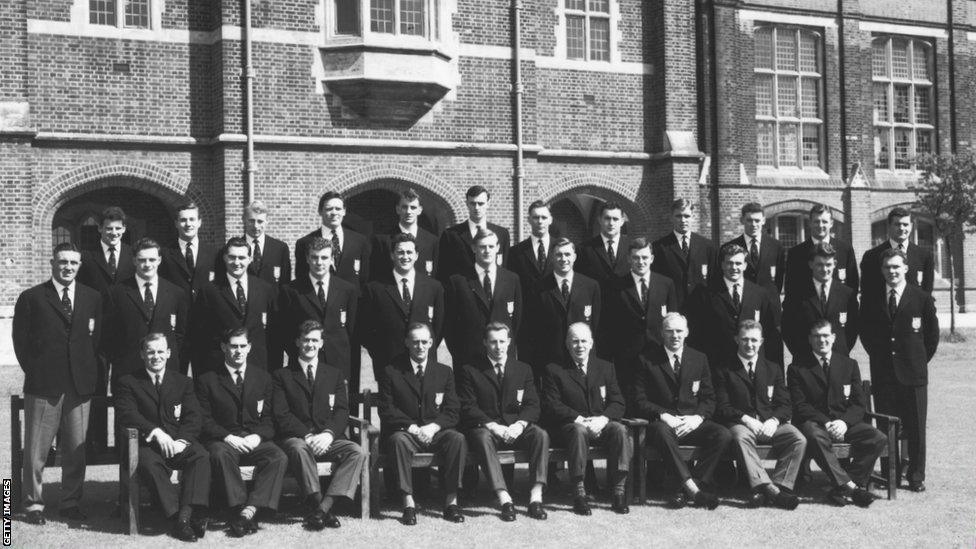
The Lions first tour Australia in 1888 and visit again in 1904, 1930 and 1950. The 1959 squad, pictured here, beats the Wallabies 2-0 but loses 3-1 to New Zealand - tours down under in the early days normally visited both countries
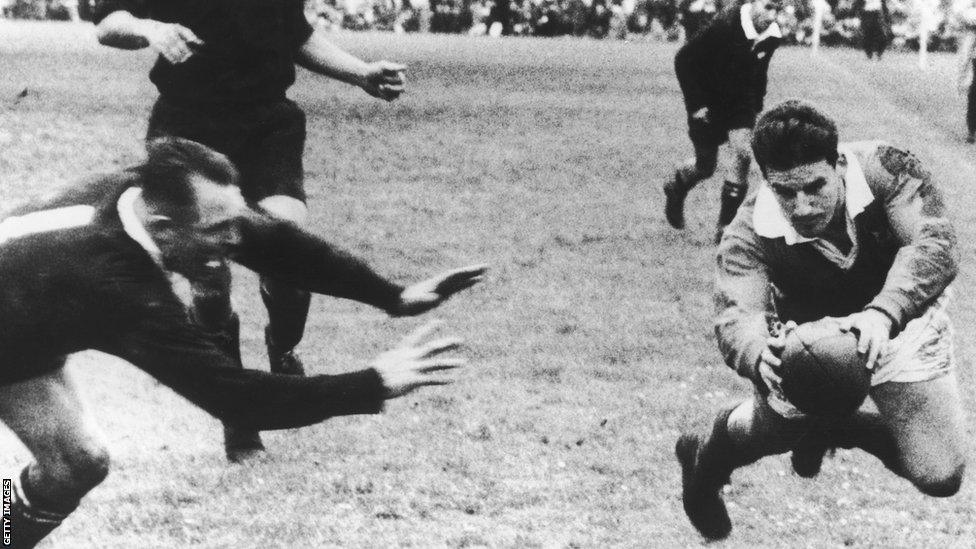
The solitary win against the All Blacks comes in the final Test, with the Lions' English fly-half Bev Risman, who later played rugby league for Great Britain and was president of the Rugby Football League in 2010, scoring in the 9-6 win in Auckland
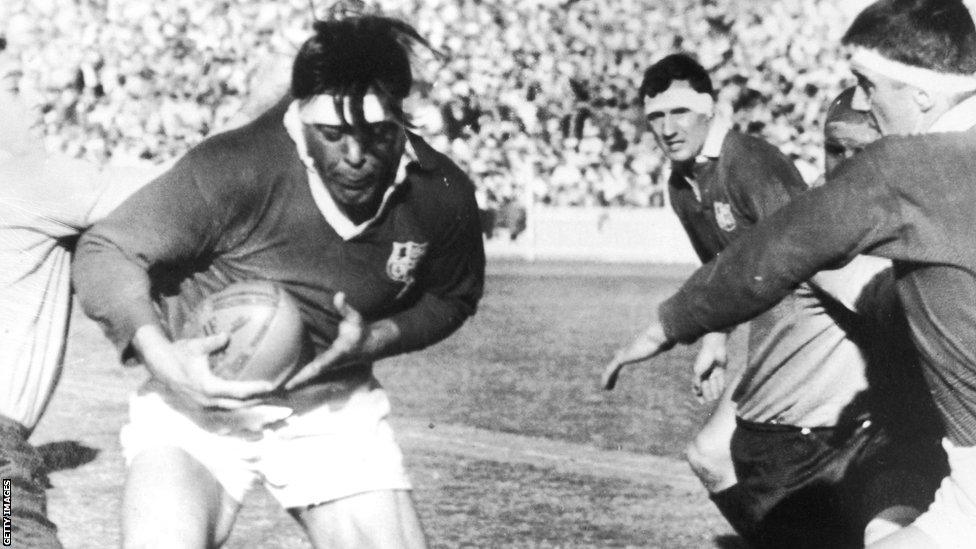
The next time the Lions visit Australia is 1966 when Scotland lock Mike Campbell-Lamerton, pictured in action during the 11-8 win in the first Test in Sydney, captains the tourists to a 2-0 series victory
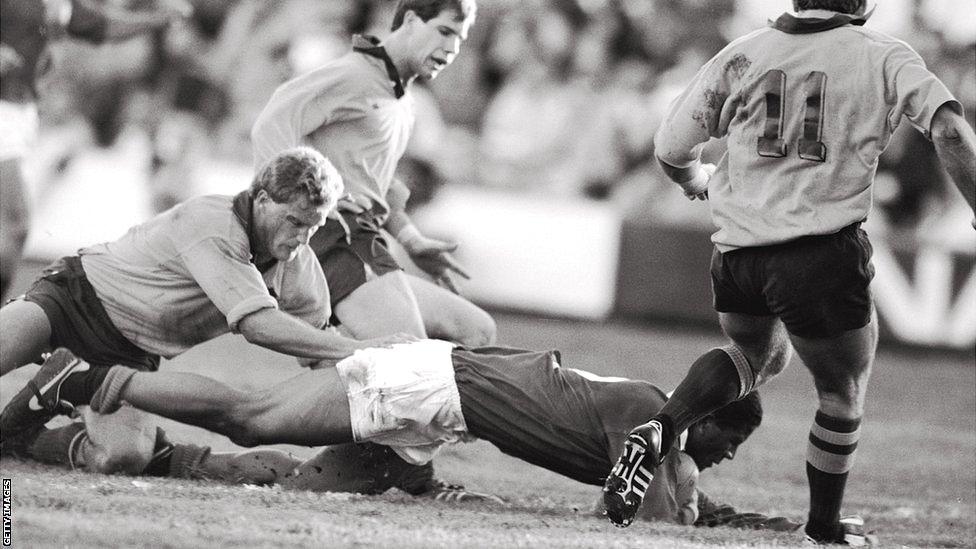
Amazingly it is fully 23 years before the Lions return to Australia, but it is also the first time the Wallabies host a full tour on their own. England centre Jeremy Guscott, now a BBC pundit, scores a crucial try as the Lions win the second Test - the infamous Battle of Ballymore - 19-12 to level the series at 1-1
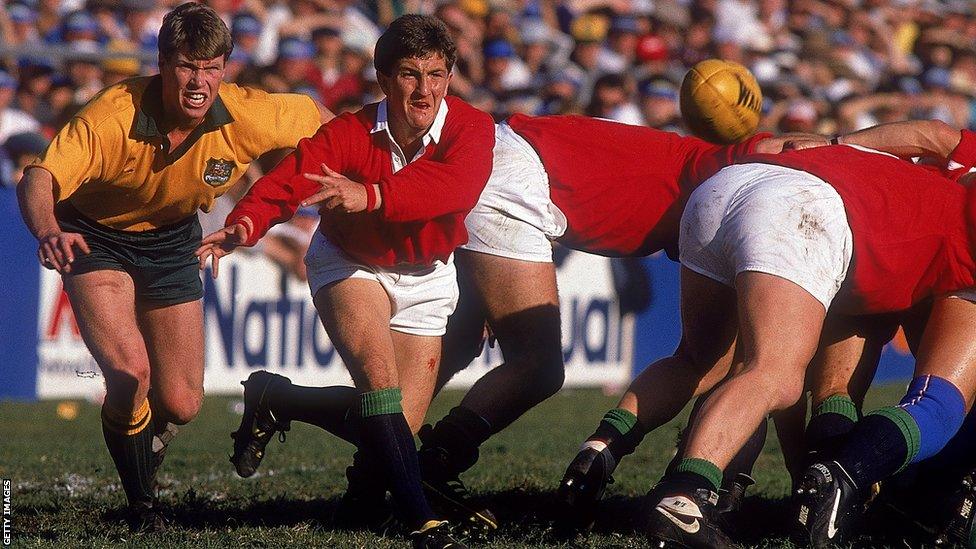
Noted hardman Mike Teague says the second Test is the "most violent game ever played". The Battle of Ballymore is sparked by Welsh scrum-half Robert Jones (passing the ball) standing on the foot of Australia counterpart and captain Nick Farr-Jones (left). As the pair grapple, the forwards need no second invitation...
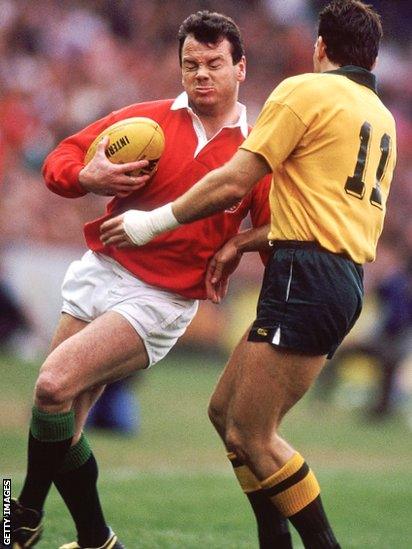
The third Test hinges on an infamous mistake by legendary Australia wing David Campese (number 11). The mercurial back throws a dreadful pass on his own line to Greg Martin, allowing Wales wing Ieuan Evans (left) to pounce and put the tourists into the lead
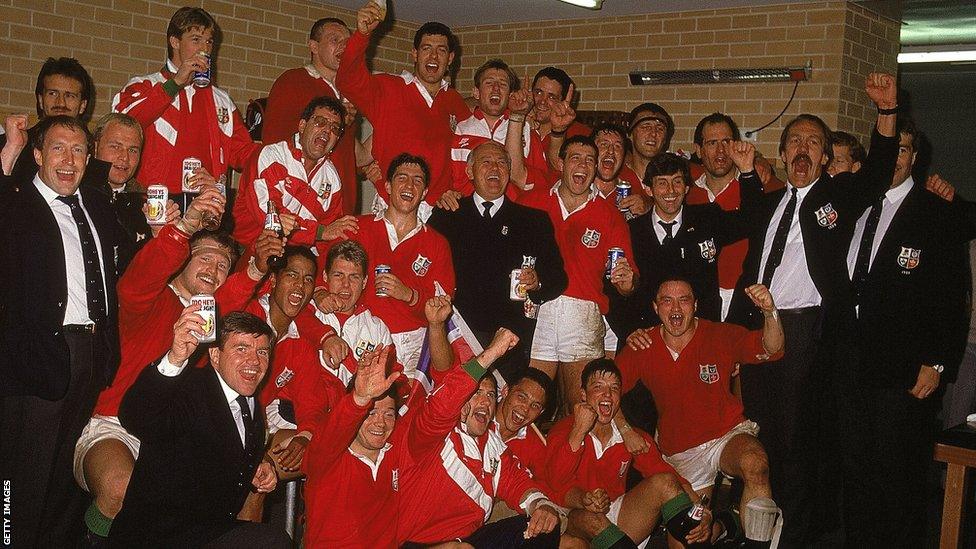
The Lions go on to win the match 19-18 and secure the series 2-1 - sparking quite a party in the changing rooms, with many cans of Australian lager drunk to toast the victory, by the look of things
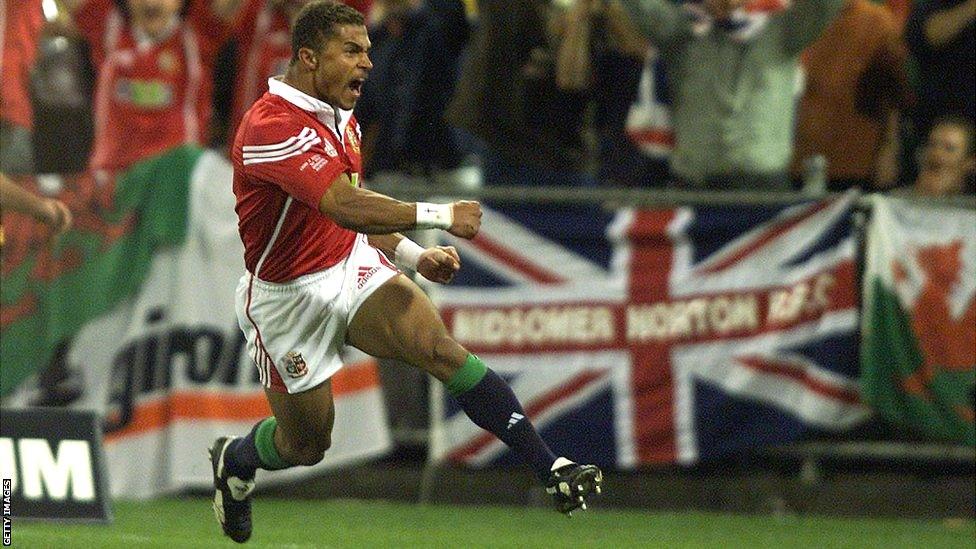
The most recent Lions tour of Australia is 2001, and the series gets off to an explosive start as Jason Robinson rounds Wallaby full-back Chris Latham to score a spectacular third-minute try as the Lions win the first Test 29-13 at the Gabba
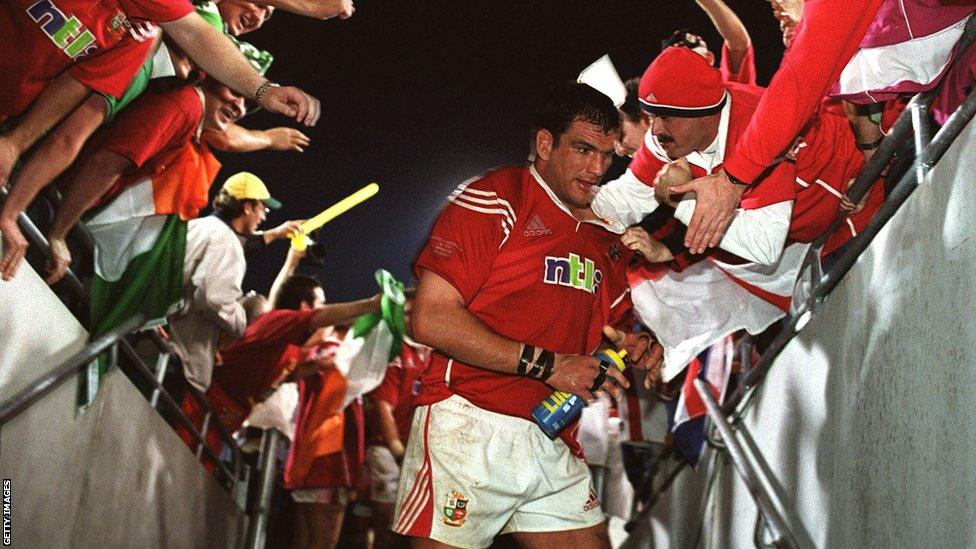
The 2001 Lions are captained by England great Martin Johnson, here leaving the pitch after the first-Test victory, and when his men lead 11-6 at the break in the second Test it looks as though they are on course for a second successive series win over the then world champions...
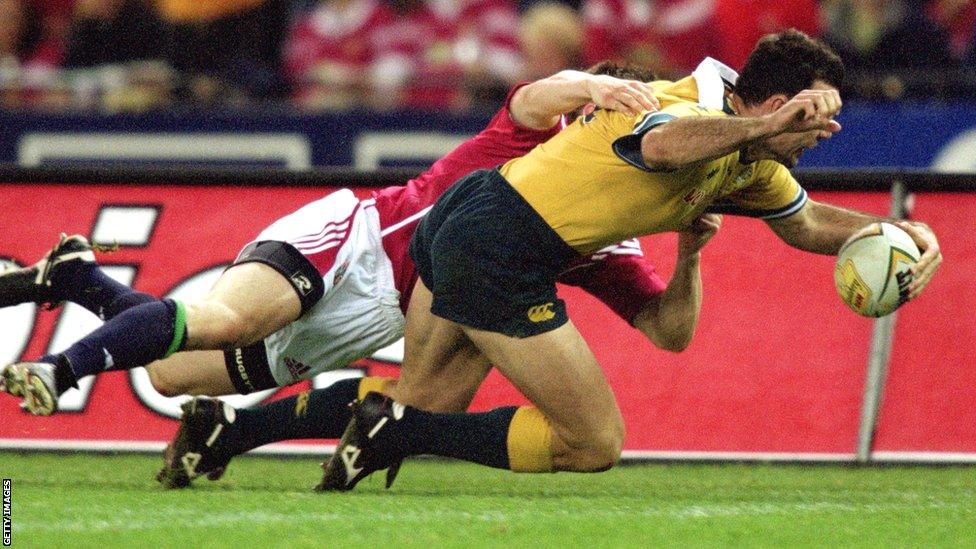
But early in the second test Australia winger Joe Roff intercepts a Jonny Wilkinson pass, races away to score and changes the momentum of the match. The Lions cannot respond and the hosts run out 35-14 winners, recording their highest ever points total against the Lions in the process
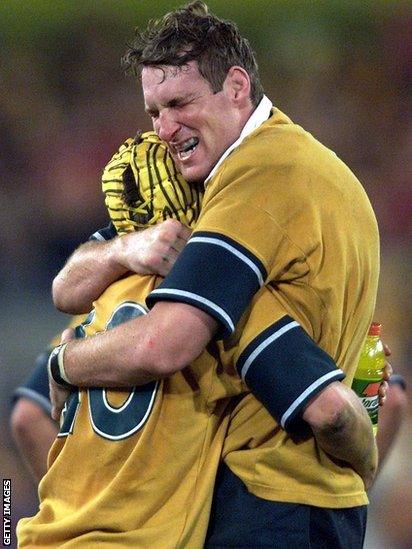
The teams head to Sydney for the decider and it is delicately poised, 16-13 to the hosts, at the break. After taking the lead courtesy of a Robinson try, the Lions are pegged back and trail 29-23 entering injury time. They have a line-out five metres out, but Justin Harrison steals the throw and the chance is gone
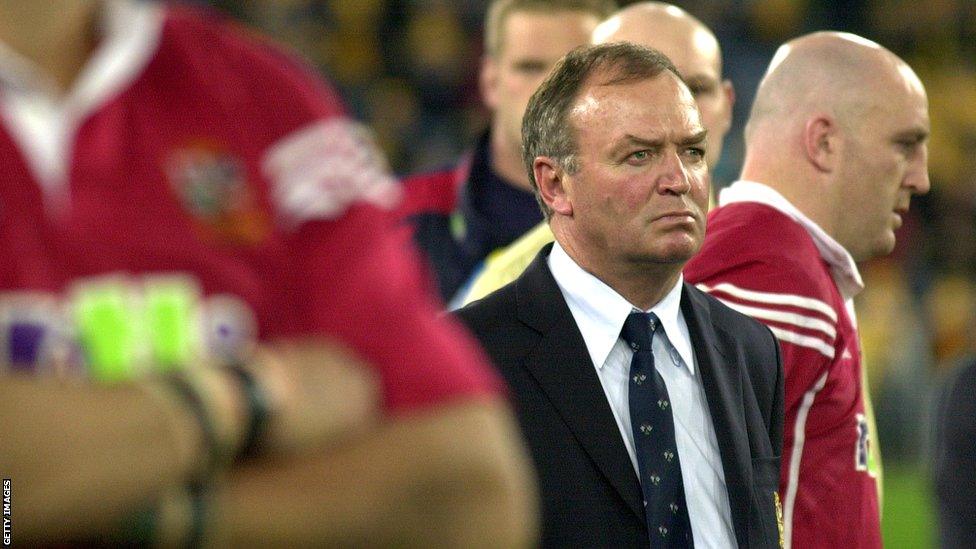
It is a stunning piece of play by the Australia second row and ensures his side win a thrilling series 2-1. Lions coach Graham Henry, later to guide New Zealand to World Cup glory, can only look on in disbelief. Twelve years on a new vintage, again coached by a New Zealander in Warren Gatland, head south to seek revenge
- Published27 April 2013
- Published29 April 2013
- Published28 April 2013
- Published26 April 2013